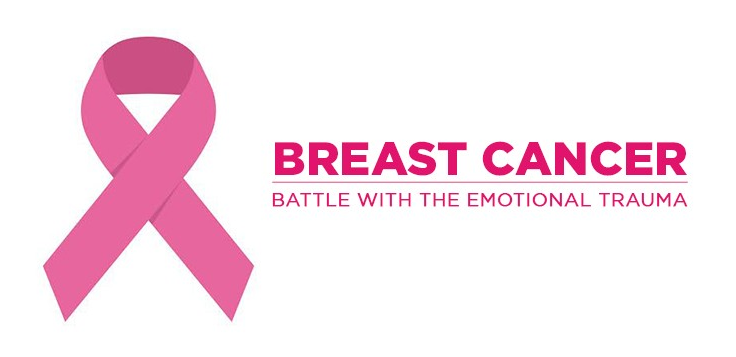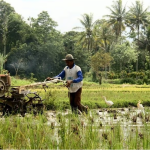INNER STRUGGLE
According to the study published in the Journal of National Library of Medicine titled Psychiatric comorbidities and breast cancer: A study from Jammu region of UT of J&K, India highlighted, “The study involved 205 individuals in all. The average age was stated as 49.25 ± 11.44 years, and the majority of them were married homemakers living in rural areas with nuclear families. The prevalence of stress, anxiety, and depression was found to be 60.17%, 73.17%, and 83.41%, respectively. These variables were shown to be substantially (P < 0.05) correlated with place of residence, number of children still alive, number of hospital visits per month, length of time after diagnosis, and kind of treatment received.
Hajira, a 50-year-old woman from North Kashmir, bravely shared her journey with Triple Negative Breast Cancer. She found immense comfort in the unwavering support of her children, particularly her eldest, who selflessly left his job to care for her upon learning of her diagnosis. “The most emotionally challenging moment in my life was during my chemotherapy sessions, which left me severely weakened and unable to eat. However, amidst this darkness, my family’s unwavering support shone bright, particularly my children’s,” Hajira said.
Recognizing the immense challenge and emotional turmoil of that period, Hajira lamented, “When chemotherapy began, I was met with the devastating reality of hair loss. As I watched myself become increasingly bald, I felt my confidence shatter, and I succumbed to depression and anxiety. I collected my fallen hair in a plastic bag, tears streaming down my face as I struggled to come to terms with my condition. I was completely heartbroken. I sent my hair to my hometown to be buried in the soil. However, when my mother saw the bag of hair, she was overcome with shock and grief, suffering a fatal heart attack. She was rushed to SMHS hospital, but sadly, she had already passed away, her death a direct result of the anguish she felt upon seeing my hair loss.”
In the following days, I began to recover, and my experience sparked a sense of urgency in me. I strongly encouraged all my sisters to prioritize their health by getting checked and performing regular self-examinations, emphasizing that early detection of breast cancer significantly reduces risk factors and improves treatment outcomes.
Psychological Distress
Dr Yasir Rather, professor in the Department of Psychiatry, IMHANS GMC Srinagar said. “Breast cancer is a malignancy women mostly get affected by it. Usually, when breast cancer is involved, there is a thought of disfigurement because of disfigurement; they develop a lack of self-esteem and lose self-confidence. It affects their looks. They develop anxiety regarding the overall look of the body. The more anxiety they have, the less self-esteem they have. So, there are chances of depression.”
“Sometimes, we have seen patients who go into severe depression because of that and they develop suicidal thoughts at times because of this malignancy. Overall, they have to take chemotherapy in some cases like in the type of Triple Negative Breast Cancer. Chemotherapy is a drug which is very hard to tolerate. Because of this, they face a lot of problems. It can affect their overall body image. So, there is baldness because of chemotherapy. Again, because of this, they can develop a disfigurement look. Chemotherapy adds intolerance. Most of the patients are intolerant to chemotherapy because of the side effects. So, it adds psychological distress to them,” he added.
Psychiatric Comorbities
As per the study published in the Journal of the Asian Pacific Journal of Cancer Care (APJCC) titled Prevalence of Anxiety and Depression in Breast Cancer Patients and their Correlation with Socio-Demographic Factors highlighted, “there is a significant frequency of anxiety and depression among patients with breast cancer. Patients who live in rural regions, are single, have low monthly incomes, are younger, and have less education are more vulnerable. As a result, certain patient groups may require more attention, assistance, and perhaps a referral to the psychiatry department”.
“Mostly, psychiatric comorbidities are depression, major depressive disorder, anxiety, generalized anxiety disorder, insomnia, PTSD, post-traumatic stress disorder, insomnia, or suicidal thoughts. They can develop suicidal thoughts. So, these are the comorbidities which you find in depression patients,” Dr Yasir said. “ On average, we see 10-15 cases in a month. So, is it important to have a psychiatrist In any chronic illness, we have to disclose the chronic illness any life-threatening illness. The physician or treating doctor must refer a patient to counseling because when we disclose malignancy, it is traumatic for them. It is traumatic when we break the news. So, how to break the news is a big task.”
“Usually, counselors or psychologists prepare the patient for this news. They bring acceptance to the patient. Sometimes, they go into denial. How can this happen? Because of denial, they won’t be adherent to treatment. So, they have to bring acceptance to the patient,” Dr Yasir said. “If they are in denial, then when they get acceptance, they can land into depression. To get rid of depression, a counselor or psychologist is very important. So, if counseling doesn’t work, or if cognitive behavioral therapy doesn’t work, then they can be referred to a psychiatrist for further treatment in which we can use antidepressants or medication.”
Chronic Depression
For a long time, Kashmir has been the epicenter of mental illness. Kashmir has reported extreme morbidity for several years. Approximately 18 lakh adult Kashmiris, or nearly 45% of the total population, displayed signs of mental distress, as per the study done in a 2015 survey by the Médecins Sans Frontières.
In Kashmir, the prevalence of Depression, Dementia, and Breast Cancer Depression is higher because of the social-political instability. It’s an add-on effect. Otherwise, it’s a global phenomenon,” Dr Yasir said. “Dementia is increasing globally. Not just here, but globally because life expectancy is increasing. Before, life expectancy was just 30-40 years, or 50 years back. Life expectancy was just 60 years ago. Now, life expectancy is increasing in the 90s and 80s. In Kashmir, mental health, anxiety, and depression are at their peak because of sociopolitical instability here, and because of that, economic growth, unemployment, and recreational facilities, like if we talk about children, recreational facilities, there are no avenues, sports activities, or other kinds of healthy behaviors, which encourage healthy behaviors in children.”
“The malignancy rate here is increasing a lot. The reason is due to adulteration of food, or it’s due to genetics. Stress can also play a role in malignancy because stress affects a person’s immunity. If we look at depression, anxiety, psychiatric disorders, it affects the immune system, which can also lead to different kinds of illnesses,” He added.
Ovum Banking
Dr Bilquees Jameela, a Gynecologist in Kashmir said. “There is no direct impact of Breast cancer on the fertility of females but breast cancer treatment can impact fertility rate in females like chemotherapy,”
Dr Musaib Mushtaq, Senior Resident Department of Radiation Oncology SKIMS, Srinagar said. “There are issues with infertility due to Breast Cancer. But we have the measures to tackle them. One is ovum banking, which is costly especially for young premenopausal patients. There are also many unmarried patients. They are married and have not yet completed their family. The issue of infertility is there. We counsel our patients on how to preserve ovum banking. We have other measures like ovarian suppression with drugs. We use analogs. We have alternatives to combat that. We use cytotoxic drugs.”
Financial Burden
Rural areas lack access to cancer treatment facilities. For extensive medical care and checkups, they have to travel to Srinagar.
Triple Negative Breast Cancer Survival Hajira said. “We traveled from Kupwara to Srinagar for my cancer treatment, even if my family manages the finances somewhat; it still has an effect on the family’s financial situation. The government schemes for cancer treatment don’t always function as intended. It would be wonderful and beneficial for cancer patients and their families if the government schemes in Kashmir were properly approved.”
Technologies
Dr. Manzoor Ahmed Mir, Senior Assistant Professor Head/ Coordinator of the Department of Bioresources, University of Kashmir, said. “m- Shakti app is available on the Android or Google Play Store for download. It will guide how to check if you are suffering from breast cancer, where to go testing for, or need any help can go to their helpline that visit the patient if somebody is in distress. We have a lot of population in rural areas of Kashmir. We don’t have even access to smart phones. So about the awareness of breast cancer and all that, there is a need to make those people aware of this dreadful disease and it’s not something big we cannot do it, we can do this and we have the means if there is will we can do it simply and that everybody should be made aware about the symptoms, the signs if they are getting detected early then the treatment is very easy but if they are detected late in stage second third or if it is metastasized, then it becomes difficult.”
(Author is currently working as online editor at Rising Kashmir and is a recipient of the 2024 REACH MEDIA fellowships for Reporting on Non- Communicable Diseases)








